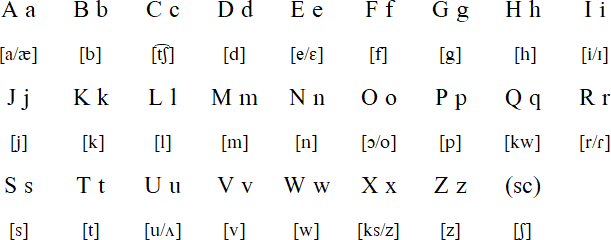Glosa is an international auxiliary language developed by Lancelot Hogben, Ronald Clark and Wendy Ashby. It is based on Interglossa, a language created by Hogben and published in 1943. He saw his language as a first draft, and worked with Ronald Clark from 1960 to expand and improve it. They were joined by Wendy Ashby in 1972. The first Glosa dictionary was published in 1978.
Glosa is an isolating language in which words do not change to indicate their grammatical role in a sentence. Verbs do not conjugate and nouns do not decline. Many words can function as verbs, nouns, adjectives or prepositions depending on their position in a sentence. The vocabulary is based mainly on Latin and Greek roots used in scientific, technological and medical terminology in major European languages.
The Glosa Education Organisation (GEO) was set up in 1987 to promote the teaching of Glosa as a second language in schools around the world. GEO's official website, glosa.org, was set up in 1996, and a Glosa Wiki was created in 2021.

Glosa es un internatio auxi-lingua (alo auxlang); qi pa gene face ex Lancelot Hogben (ko nima Interglossa, GB, 1943), Ronald Clark e Wendy Ashby (GB, 1972-1992). Plu auxlang es artificiali lingua; qi debi auxi komunika inter dice-pe de difere plu prima-lingua e so es supli ad plu lingua de plu natio.
Source: http://www.glosa.org/gl/index.html
Glosa is an international auxiliary language (auxlang), that was developed by Lancelot Hogben (as Interglossa, GB, 1943), Ronald Clark and Wendy Ashby (GB, 1972-1992). An auxlang is an artificial language that should help the communication between speakers of different native languages and so be a supplement to the national languages.
Source: http://www.glosa.org/en/index.html
Information about Glosa | Numbers
Information about Glosa
https://en.wikipedia.org/wiki/Glosa/
https://glosa.fias.fr/glosa
http://www.glosa.org/en/
Blissymbolics, Esperanto, Folkspraak, Glosa, Ido, Interglossa, Interlingua, Interlingue/Occidental, Interslavic, Lingua Franca Nova, Lojban, Novial, Romance Neolatino, Romániço, Slovio, Solresol, Uropi, Volapük
Languages written with the Latin alphabet
Page last modified: 06.09.24
[top]
You can support this site by Buying Me A Coffee, and if you like what you see on this page, you can use the buttons below to share it with people you know.

If you like this site and find it useful, you can support it by making a donation via PayPal or Patreon, or by contributing in other ways. Omniglot is how I make my living.
Note: all links on this site to Amazon.com, Amazon.co.uk
and Amazon.fr
are affiliate links. This means I earn a commission if you click on any of them and buy something. So by clicking on these links you can help to support this site.
[top]